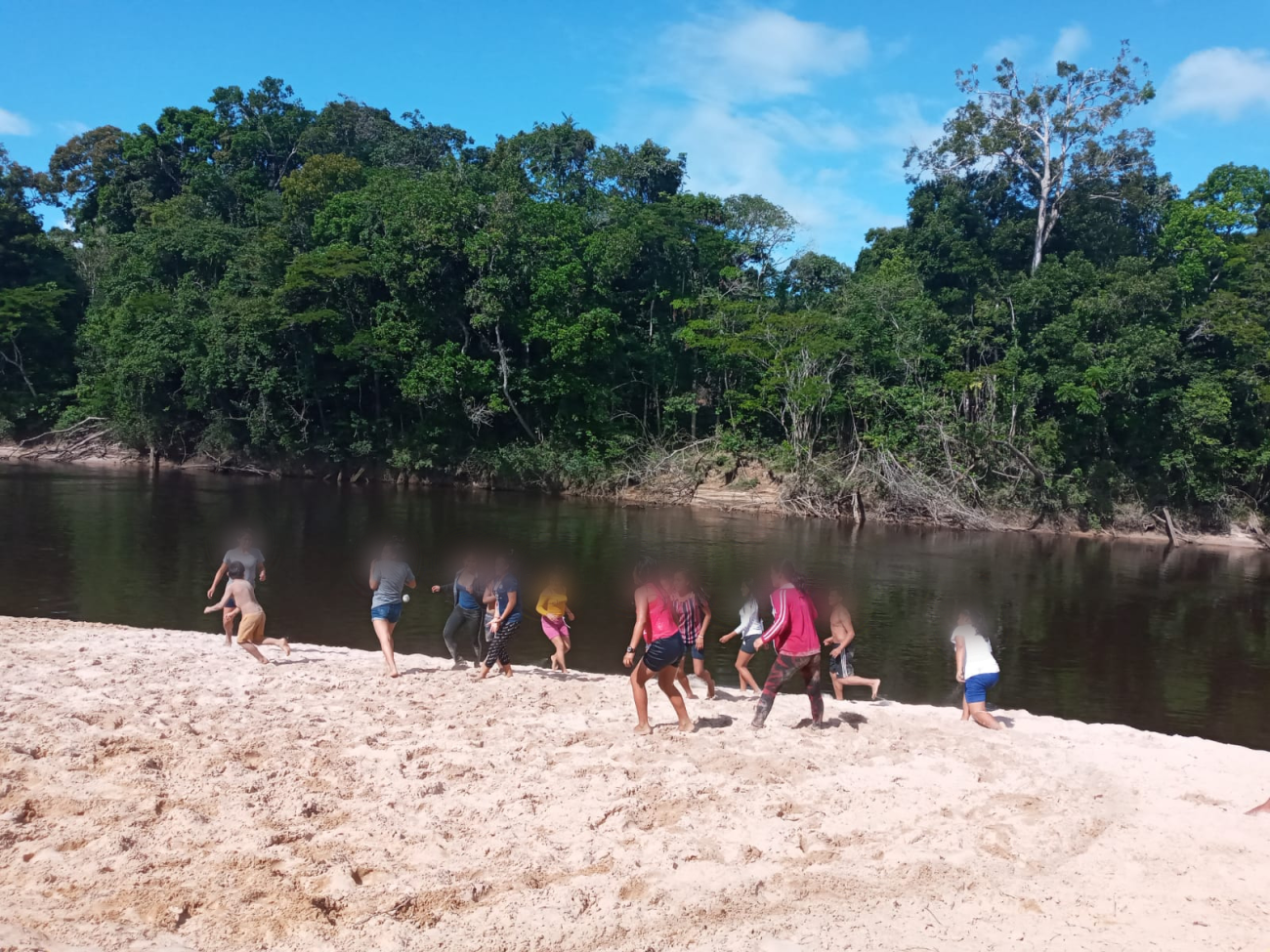Heather* grew up in a small community in the Cuyuni-Mazaruni Region of Guyana (Region Seven).
She and her siblings enjoyed a mostly happy childhood, but there were times when she recalls seeing her mother abused by her father. “Sometimes, I would get away from home after seeing this because I was so traumatised,” Heather says.
Her experience with domestic violence extended beyond the home; Heather recalls having a close encounter with a male relative who tried to force himself on her. She also witnessed other women in her community being abused by their male partners. These memories from her childhood and adolescence stayed with her, and she often wondered how many women were suffering in silence.
“This had been happening almost my entire life, and I didn’t like it. I looked at all of these things in the village and I was thinking, ‘What if these things happen to other women and nobody knows about it?’”
In 2021, Heather heard about the Spotlight Initiative from an acquaintance from Georgetown. The programme was seeking volunteers to help end violence against women and girls – she was immediately interested.
“I wanted to make a difference. I saw it as an opportunity to help other women or children going through that,” she says.
In March 2021, Heather underwent training to carry out her work as a volunteer in her village. “I had to do courses on [gender-based violence] prevention…how to be safe and so on. These were very good courses, and they helped me with my work in the village,” Heather says.
Now, Heather acts as an advocate for survivors of domestic violence and works closely with other advocates to report suspected cases, and refer survivors to services.
“When I encounter a case of domestic violence, I call my supervisors and they refer me to other organisations. We are working together [to ensure survivors get help].”
The volunteer values the work she does because it allows her to be a voice for those who may be afraid to speak out. Recently, she was able to assist her own close relative who had been sexually assaulted and who came to her for help.
“I saw how badly it affected her. She was depressed and traumatised by what happened. That was the worst experience I have encountered so far because it was so close to home,” Heather admits.
The young advocate says she likes that the Initiative harnesses multiple resources through partnerships. She believes that this collaborative approach is key to ensuring that survivors of domestic violence and intimate partner violence get the holistic help they need.
Heather hopes to see initiatives such as gender-based violence sensitisation sessions and volunteer training take place in other communities like hers.
“When we have sensitisation sessions, we can teach men to have a positive mindset toward women. We can have family activities for everyone to be involved,” she says.
Heather encourages anyone who is experiencing abuse to speak out.
“It’s not your fault you are going through this. You can always come out from there. Seek help from organisations, you don’t deserve to be abused,” she says.
Heather is confident that she is doing what she is meant to do.
“I want to continue to [do this] work. My community doesn’t have social workers. People need help with these issues… so I would like to continue in this line of work to help survivors.”
By Jasmaine Payne
*Name has been changed to protect the source




